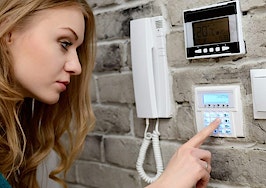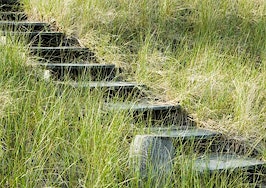- Check out meet-up groups and industry networking events. Find the person running the meeting and network away.
- Auctions provide a place for cash buyers to meet up and talk business.
- Credibility and trust will help you network.
There is no way you haven’t heard it before: Real estate is a people business. However, even though we’ve all been reminded countless times, there are those of you out there who are unaware of just how much weight this proclamation carries.
Truth be told, networking is probably the most important aspect of a real estate professional’s career. Nothing else coincides with more upside and growth than making connections with the right people.
In its own way, the idea of real estate centering on people transcends the business itself. You could make an argument for placing people ahead of transactions, deals and even capital. Although each is important, the right people have a way of making these tangible assets more abundant than ever.
Why is networking so important?
Making and utilizing contacts over the course of your real estate career must take priority over every other aspect of the business. Nothing will resonate to the same degree as a properly formed and well-intentioned partnership.
If you have taken to the concept of networking with care and diligence, it is entirely possible to maintain a list of contacts that can exponentially increase both the quality and efficiency of your business.
Of course, you must first understand the one cardinal rule that has become synonymous with making contacts: networking is a two-way street. The best relationships in any industry are always those that benefit every party involved.
[Tweet “The best relationships in any industry are always those that benefit every party involved.”]
Consequently, mutually beneficial relationships are the only way to build a working rapport with local professionals. It’s as simple as that; if you can help someone and they can help you, it only makes sense to help each other.
There are, however, caveats to the entire process of becoming an effective networker. You can’t just go in without a plan.

Peerayot / Shutterstock.com
I highly recommend being the first person to bring value to the table. Don’t hesitate to offer value first, as the simple gesture of reaching out is quite influential in and of itself. Make an attempt to understand their business goals, and see what you can do to help them.
If you have fostered a good enough relationship, chances are they will be more than willing to reciprocate their appreciation. Before you know it, you will have a trusted contact in what might soon be your most powerful tool: your network.
Networking is a number game: the more viable contacts you make, the better networker you will be. Subsequently, the better you can network, the more promising your business prospects will become.
Where to find networking opportunities
I can’t stress the importance of local events enough, at least as they correlate to networking opportunities. Community gatherings are a great way to extend your sphere of influence.
[Tweet “Community gatherings are a great way to extend your sphere of influence.”]
I have found the following events to harbor some of the best in-person networking opportunities:
1. Auctions
Whether large or small, auctions provide an excellent opportunity to establish contact with like-minded investors in your area.
Auctions also cater to serious cash buyers, a population where you might want to cultivate a network. In their truest form, auctions provide a place for cash buyers to meet up and talk business. There is nothing to say that business can’t be your own.
[Tweet “Auctions provide a place for cash buyers to meet up and talk business.”]
You don’t even need to bid on properties. Simply network with those who have the capital and interest to buy a home. For all you know, your property might be exactly what they went to the auction looking for.
2. Real Estate Investor Association (REIA) meetings
Most cities have an REIA. As their name suggests, these meetings offer anyone who wants to attend a chance to meet up with professionals in the local industry. There is typically time allotted before or after every meeting for everyone to meet up and network.
However, I recommend being somewhat selective with those you choose to talk to. Seek out those intent on leading the meetings; these people are likely going to be a more reliable source, and there’s a good chance they can introduce you to more people. That way you don’t waste time talking to people whose interests might not be in line with yours.
3. Local landlord associations
Not unlike auctions, local landlord associations can be a great place to locate serious buyers. Landlords already have some skin in the game, so it is safe to assume a select few are always looking to increase their stakes.
Your next property could be the buy-and-hold asset they have been waiting for.
The advent of technology has even made online networking a viable option. The following platforms have made it easier than ever to connect with people:
- Meetup.com
- Yahoo! Groups
- A variety of other social media platforms
I recommend that you diversify your networking strategies, just as you would with a portfolio. Prioritize meeting people in person, as it is easier to make a connection, but don’t neglect online portals. The internet can expand your reach exponentially with just a few clicks; you are only hurting yourself if you don’t use it.
There are endless opportunities for real estate professionals to network. Everyone you meet, for that matter, has the potential to further your next deal or, at the very least, point you in the right direction.
The key, however, is to establish a quality network, not necessarily one of average quality and high volume. Feel free to talk to as many people as you can about your business, but don’t hesitate to follow through with those that are more promising.
Refine your networking process
Whether you know it or not, networking is a skill. It must be honed. Neglecting to refine your networking abilities will hurt your business. If you don’t use it, you will lose it. Therefore, you must keep practicing and coming up with better ways to make contacts.
Fortunately, there are a few concepts that will help you perfect the entire process, things you can do to improve yourself and your business. Be proactive, and — most importantly — don’t expect opportunities to present themselves; it is up to you to create them.
Tools needed to network

Audrey M Vasey / Shutterstock.com
To enhance your networking efforts, you will need to rely on more than just a contagious personality. Although a tool in itself, your character must be complimented by a variety of other assets that serve to promote your business.
I recommend including the following tools in your networking arsenal:
It should go without saying, but business cards are necessary. They are the single most valuable networking tools outside of yourself. There is also no better way, at least that I am aware of, to leave a piece of networking behind for a potential contact to remember you by.
I also recommend asking for business cards, as opposed to handing them out. In doing so, you create an opening to trade cards.
However, what you do with said cards could make or break your connection. That’s why I recommend following up with an introductory email the following day. You could argue that the follow-up is 90 percent of the connection.
[Tweet “I recommend asking for business cards, as opposed to handing them out.”]
2. Elevator pitch
We are all familiar with the elevator pitch, but far too many investors use them in their networking efforts. You must come up with a short commercial (no more than 30 seconds) that describes what it is you do.
I recommend creating a different pitch for different scenarios, or else you might come off a bit misunderstood. If you are having a hard time coming up with one yourself, use the following as an example:
- Break the ice: Ask them an enrolling question; something along the lines of “Do you come here a lot?”
- Pay a compliment: Pay the individual a small compliment to get things going.
- Let them know you can help: You must be selfless and network in a way that puts the other person’s priorities first.
- Acknowledge the benefits of working with you: Again, let them know what it is you can do for them. Use specific examples.
- End on a yes question: Ask them another enrolling question that they can’t help but say yes to: “Do you like making money through referrals?”
3. Credibility packets
Never underestimate the importance of building credibility and trust within this industry. More so than anything else I have mentioned up to this point, credibility and trust will help you network.
[Tweet “Credibility and trust will help you network.”]
Truth be told, people are skeptical of real estate investors. If for nothing else, they are ignorant of the entire industry, and people tend to shy away from things they don’t understand. That’s why it’s so important for you to build trust in those you network with.
I encourage everyone to build credibility packets, which simply document your track record. They can include pictures of projects you completed, renovations and even the families you have helped along the way.
It gives you a way to show them what you are capable of. A credibility packet is just that: Something to prove to those you network with that you are capable of doing what you say.
Include the following in your packets:
- A description of what you do and who you are
- Company credentials
- The benefits that coincide with working together
- Several ways in which you can provide a service
- Property showcases
- Client testimonials
- Professional testimonials
- Anything you think will help make your case stronger
Remember, real estate is a people business. The more you treat it like one, the more likely you will realize sustainable success.
Build strong relationships and fortify them with trust and reliability. Only then will you truly be able to capitalize on what this industry has to offer.
[Tweet “The more you treat it like a people business, the more likely you will realize sustainable success.”]
Than Merrill is the founder and CEO of FortuneBuilders and CT Homes. Connect with Than on LinkedIn or follow him on Twitter @ThanMerrill.



